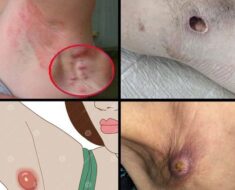What Happens When a Bee Stings Your Hand? Here’s What You Should Know
A Small Sting, A Big Reaction
Bee stings are more than just a moment of pain — especially when they occur on the hand. Since our hands are full of nerve endings and play a vital role in daily tasks, a sting in this area can be particularly uncomfortable and even dangerous for some people.
Why Do Bees Sting?
Bees usually sting in self-defense. If you accidentally get too close to a hive or trap a bee between your fingers, it may see you as a threat and strike. Unfortunately, when a bee stings a human, it dies shortly after — making the act a last resort for survival.
Immediate Symptoms to Expect
- Sharp burning pain at the site of the sting
- Redness and mild swelling
- Itching or warmth around the sting
These symptoms are usually mild and go away within a few hours. However, for some people, especially those allergic to bee venom, symptoms can be severe.
When to Seek Medical Attention
Most bee stings are harmless, but seek emergency help if you experience:
- Difficulty breathing
- Swelling of the face or throat
- Dizziness or fainting
- Rapid heartbeat
These are signs of an allergic reaction known as anaphylaxis, which can be life-threatening if not treated immediately.
First Aid Tips for a Bee Sting on the Hand
- Remove the stinger — Use a flat object like a credit card to gently scrape it out. Avoid using tweezers, which may squeeze more venom into your skin.
- Wash the area — Clean the sting with soap and water to prevent infection.
- Apply ice — Reduce swelling by placing an ice pack on the sting for 15-20 minutes.
- Use antihistamines — Over-the-counter medication like diphenhydramine can help relieve itching and swelling.
- Monitor your symptoms — If swelling spreads or worsens, seek medical help.
Can a Single Bee Sting Be Dangerous?
For most healthy adults, a single sting is not dangerous. However, children, the elderly, and individuals with compromised immune systems or allergies should be cautious. In rare cases, even a single sting can trigger serious reactions.
Preventing Bee Stings in the Future
- Avoid wearing strong perfumes or floral clothing outdoors.
-




